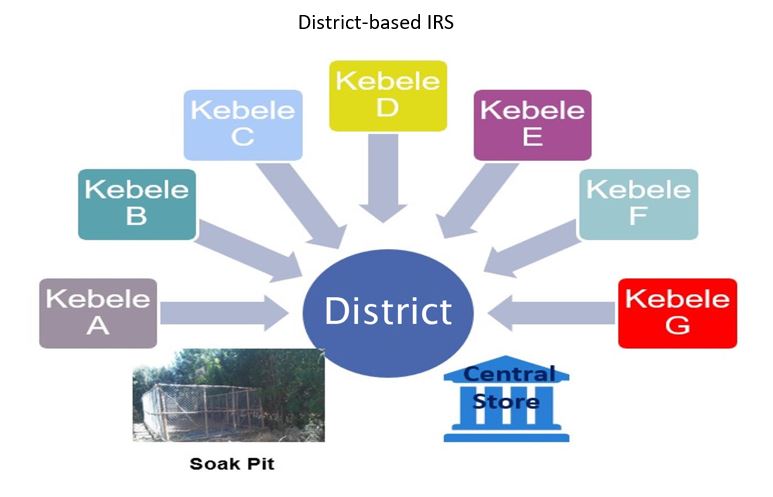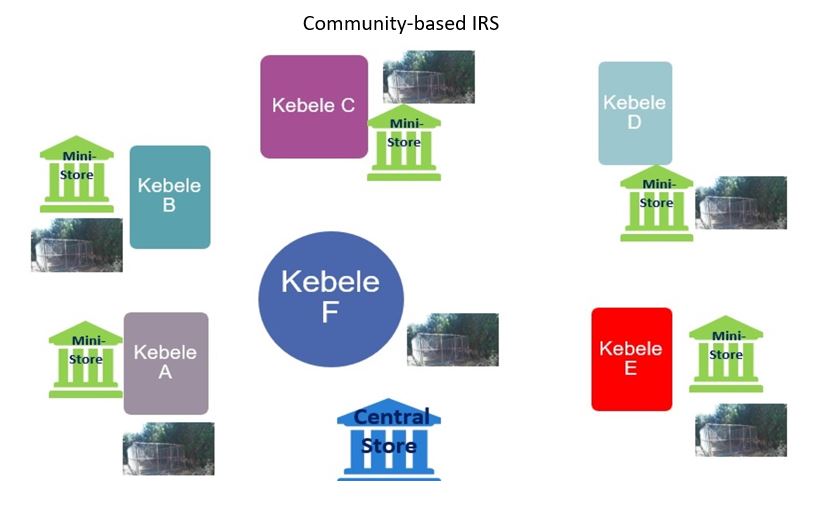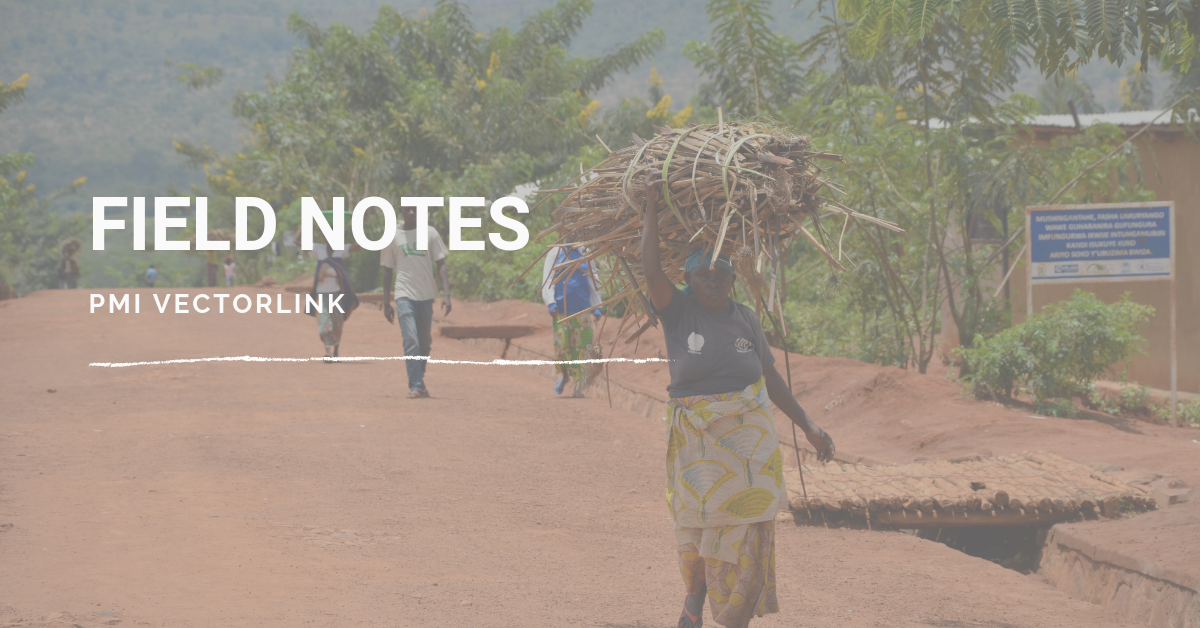This week’s Fist Bump goes to VectorLink Ethiopia for implementing tailored models of indoor residual spraying (IRS) to increase community acceptance and financial sustainability. VL Ethiopia utilizes four different models of IRS: district-based, community-based, cluster-based, and hybrid.
- District-based IRS model: Implemented at the district level. Each district has on average two centrally located operational sites and one central store. Spray teams stay at the operational sites and require vehicles to travel to villages.
- Community-based IRS model: Implemented by Kebele (lowest administrative level). Each Kebele has a centrally located operational site, and temporary store. Spray teams can stay at home as they work in their local Kebele. They don’t require vehicles for daily operation activity, which is one of the cost drivers of IRS. Health workers serve as squad leaders in their communities.
- Cluster-based IRS model: One health center to five Kebeles. Spray teams stay at the health center. Vehicles are required to travel to villages.
- Hybrid model: Combination of Community-based and Cluster-based models.


Along with increasing community acceptance and financial sustainability, different models for IRS are also necessary to improve IRS performance efficiency and allow for alternative implementation plans in case of unforeseen problems. Factors that contribute to the choice of model include accessibility, infrastructure availability within each Kebele, ability of the lowest health system level to implement IRS based on one of the four models, availability of IRS equipment, and unanticipated issues like security concerns. VL Ethiopia utilizes the model that best suits the district.
Community-based and cluster-based IRS models are ways to make IRS more sustainable as they can be implemented with fewer resources, the community is invested and can help with operational costs, there is higher community acceptance of IRS, and better hands-on training is provided for IRS workers as the trainer to trainee ratio is small. However, District-based IRS does have better store management of items like insecticide.
In 2022, VL Ethiopia plans to implement Community-based IRS in 11 districts, District-based in 29 districts, Cluster-based in four districts and Hybrid in four districts. They implemented Cluster-based IRS for the first time in 2019, and Hybrid in 2021, with plans to do a systematic assessment and comparison among the models as well.
Well done, VectorLink Ethiopia!


